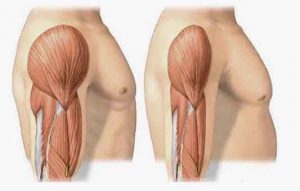
Sarcopenia
A hormone produced during exercise, the apelin, could improve muscle capacity in the elderly, fighting the age-related decrease in muscle capacity (sarcopenia), which is a major cause of loss of autonomy.
This hormone, whose production decreases with age, is secreted during physical activity and improves muscle capacity.
With a study published in Nature Medicine researchers from Inserm, Université Toulouse III – Paul Sabatier and the Gérontopôle of Toulouse University Hospital envisage apelin both as a diagnostic tool for sarcopenia and as a solution for its treatment.
In 2016, WHO finally recognized the decrease in muscle capacity – also known as sarcopenia or muscle loss with aging – as a disease.
Associated with limited mobility, sarcopenia appears to be a primary cause of the progressive loss of autonomy and the development of age-related pathologies (osteoporosis, cardiac and/or cognitive impairment) and as a consequence one of the main reasons for medical institutionalization.
Current treatment strategies produce varying levels of efficacy, often associated with side effects.

Attività fisica
There is also a lack of early diagnosis tools.
Physical activity – while presenting the major disadvantage of often being impractical or fruitless in individuals with reduced motor capacity – is often considered to be the most effective approach.
In previous studies it was shown that by stimulating activation of the stem cells at the origin of muscle cells, the muscle contraction generated by physical activity helped renew the muscle fibers (myofibers) and improve their metabolism.
The Inserm research team looked at the relationship between these mechanisms and the development of sarcopenia.
They identified a hormone, apelin, produced by the contraction of the muscle during physical activity, and which appears to be capable of maintaining and even restoring muscle capacity.
Indeed, when apelin was administered to elderly mice, the researchers saw their muscle capacity improve and their myofibers return to normal.
This improvement is thought to be due to the ability of apelin to stimulate both the cellular metabolism in the muscle and the regeneration of myofibers from stem cells.
Finally, the researchers observed that the production of apelin in response to physical activity diminishes with age.
According to Philippe Valet, co-director of the study and professor at Université Toulouse III – Paul Sabatier “in the years to come, apelin could be used for therapeutic purposes in sarcopenia because the results of the study in mice show that treatment with this hormone significantly improves muscle faculties.”
Clinical trials will be conducted from 2019 by the Gérontopôle of Toulouse University Hospital as part of the IHU-Inspire project which focuses on prevention, aging in good health and regenerative medicine.
See also
Study Explains Why Muscles Weaken with Age and Points to Possible Therapy (13/09/2011)
Link…
For more information
Nature medicine
The exerkine apelin reverses age-associated sarcopenia
Link…
Inserm
Link…
MDN
This post is also available in:
 Italian
Italian


